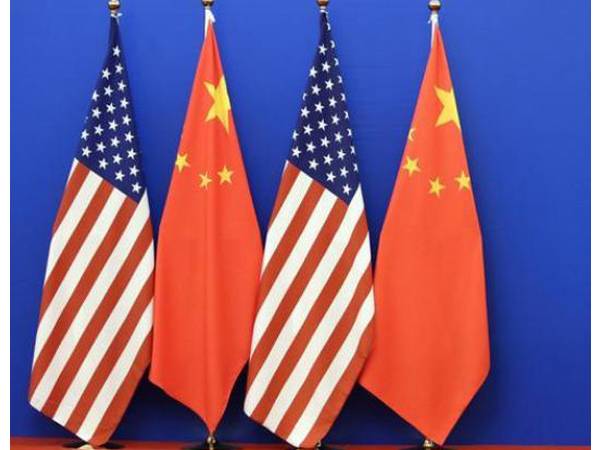
Treasury Secretary says China’s enormous and growing middle-class provided a big market for American goods and services…reports Asian Lite News
Treasury Secretary Janet Yellen kicked off a four-day visit to Beijing on Friday by calling for market reforms in the world’s second-largest economy and warning that the United States and its allies will fight back against what she called China’s “unfair economic practices.”
Yellen made the remarks at a meeting with U.S. companies doing business in China after a morning meeting with former Chinese economy czar Liu He, a close confidante of President Xi Jinping. She is slated to meet later with Premier Li Qiang.
Yellen’s trip is part of a flurry of visits aimed at calming tensions between Washington and Beijing after the U.S. military shot down a Chinese government balloon over the United States.
Secretary of State Antony Blinken visited last month and agreed with Xi that the mutual rivalry should not veer into conflict, and Biden’s climate envoy John Kerry is expected to visit later this month.
The U.S. diplomatic push comes ahead of a possible meeting between President Joe Biden and Xi as soon as September’s Group of 20 Summit in New Delhi or the Asia-Pacific Economic Cooperation gathering scheduled for November in San Francisco.
Yellen said she came to China to deepen communication and work toward a “stable and constructive relationship” between the two countries, while making clear that Washington will act to protect its national security interests and human rights.
“We believe that it is in the best interests of both countries to make sure we have direct and clear lines of communication at senior levels,” Yellen said in a prepared text.
Regular exchanges could help both countries monitor economic and financial risks at a time when the global economy was facing “headwinds like Russia’s illegal war in Ukraine and the lingering effects of the pandemic,” Yellen added.

Yellen said she would make clear to Chinese officials that Washington was not seeking “a wholesale separation of our economies,” but would raise concerns about their use of expanded subsidies for state-owned enterprises and domestic firms, barriers to market access for foreign firms, and recent “punitive actions” against U.S. firms.
Yellen also expressed concern about new Chinese export controls on gallium and germanium, critical minerals used in technologies like semiconductors. She said Washington was still evaluating the impact of the move, but it underscored the need for “resilient and diversified supply chains.”
Yellen also took aim at China’s planned economy, urging Beijing to return to more market-oriented practices that had underpinned its rapid growth in past years.
“A shift toward market reforms would be in China’s interests,” the former top U.S. central banker told the U.S. business executives.
“A market-based approach helped spur rapid growth in China and helped lift hundreds of millions of people out of poverty. This is a remarkable economic success story.”
Yellen noted that China’s enormous and growing middle-class provided a big market for American goods and services, and stressed that Washington’s targeted actions against China were based on national security concerns.
“We seek to diversify, not to decouple,” she said. “A decoupling of the world’s two largest economies would be destabilizing for the global economy, and it would be virtually impossible to undertake.”
U.S. officials say they also expect Yellen to raise concerns about the impact of China’s new counterespionage law on U.S. firms, and to warn Beijing about the consequences of supplying lethal aid to Russia.
Chinese officials, meanwhile, are expected to express concerns about the Biden administration’s plans to limit U.S. companies’ China investments at a time when China’s economy is recovering more slowly than expected from COVID lockdowns and the job market is tough.
Yellen met with her previous Chinese counterpart, Vice Premier Liu He, in January in Switzerland and made a big speech at Johns Hopkins University in April calling for “ cooperation on the urgent global challenges of our day ” between the two countries for the sake of maintaining global stability, while supporting economic restrictions on China to advance U.S national security interests.
At a Paris summit on global finance last week, a deal was brokered that restructured Zambia’s debt with its creditors, which include China — Zambia’s biggest creditor holding $4.1 billion of a total $6.3 billion debt load. The deal may provide a roadmap for how China will handle restructuring deals with other nations in debt distress, and shows the Asian superpower is willing to cooperate in negotiations with other Group of 20 nations.
However, there are plenty of other tensions impacting the superpowers’ relationship. The discovery of a Chinese surveillance balloon traversing over sensitive areas of the U.S. in February put a damper on her previous travel plans, and further strained relations.
U.S. lawmakers earlier this year grilled TikTok CEO Shou Zi Chew about data security and the social media firm’s ties to China, with some pushing a ban on the app, popular among American youths.
And last October, the Biden administration imposed export controls to limit China’s ability to access advanced chips, which it says can be used to make weapons, commit human rights abuses and improve the speed and accuracy of China’s military logistics.
ALSO READ: US lawmakers call for safety of Indian diplomats


